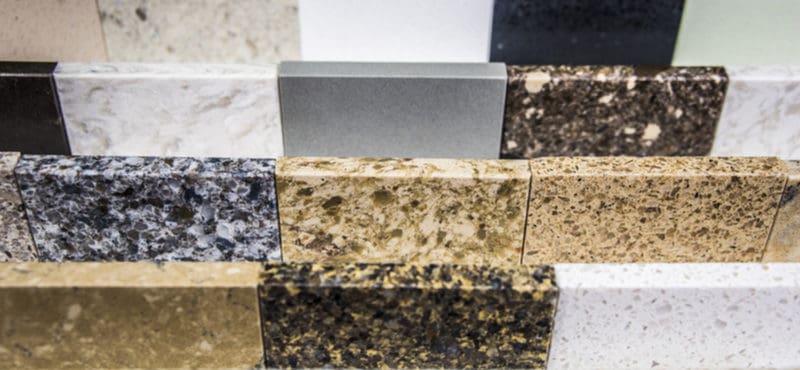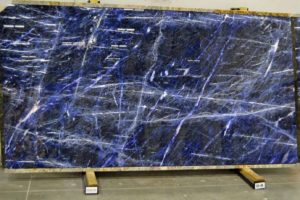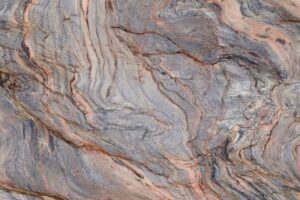
If you are considering a kitchen remodel or replacing your kitchen counter, you have many options. Granite and quartz are the two most popular countertop surfaces to choose from. Is there a distinction? Many people will argue that one is superior to the other, citing reasons why they would never choose the other. They favor granite or quartz for personal reasons. But what is the best countertop material for your home renovation? You’ll learn the difference between granite and quartz in this article so you can decide which is best for your kitchen. Let’s get started!
Granite is a coarse stone found in nature. It can be found all over the world. Granite is an igneous rock, which is formed when magma or lava cools. Granite rock is typically pink, white, or gray in color. Before it reaches your home, it is mined from quarries, cut to transportable size, and polished to a fine finish. Quartz is a naturally occurring mineral that is abundant in nature. Quartz is mined and quarried in chunks for quartz countertops, then ground down and combined with pigments and binders to form quartz slabs.
Cost
A slab of granite typically costs between $2,000 and $4,000. You may also save money if you purchase granite from a wholesaler. However, some granites, such as Exotic or Luxury Granite, can cost up to $4,000 per slab. Granite has long been thought to be the most affordable stone option, but only a few granite colors, such as builder-grade granite, can be purchased at a low price.
Quartz can be more expensive than standard builder-grade granite. Quartz countertops can be purchased and installed for as little as $1,500 or as much as $5,500. The cost of quartz is determined by the quality of the quartz you choose, the edging style, and the amount of square footage required to complete your project. Although you can save money by doing some of the initial work yourself, it is best to hire a professional installer. Unlike granite, the space in which you install your quartz must be structurally sound. Because engineered quartz is heavier and denser than other stone surfaces, this is the case. A denser stone is actually more difficult to chip or crack.
Design & Style
Because of how Granite is formed, the cooling process into molten material, granite comes in a variety of colors and patterns. No two granite slabs are alike. The options for granite are virtually limitless. There are no restrictions on the colors and formations you can use. When it comes to finding a statement piece to make your kitchen stand out or a continuous design for total symmetry, the possibilities for color and appearance are endless.
Quartz enthusiasts adore the look of quartz. Quartz’s popularity has literally taken the countertop industry by surprise. People like quartz because it has a stone-like appearance. Because of the stone makeup of quartz, it is also simple to customize its design and coloring. Because of its flexibility, quartz makes it easier to customize or personalize your kitchen than granite. Although there are many slab options in granite, it can be more difficult to find a piece that matches your color scheme. Quartz makes it easier to choose the right piece.
Care & Maintenance
You should clean your granite countertops daily with soap and water or a gentle granite cleaner. You’ll also need to be careful about certain acids and oils to prevent staining. You should reseal your granite countertops every year, which is fairly simple but still time consuming.
Quartz is less difficult to maintain than granite. Like granite, you must wipe up spills with soap and water or a gentle household cleaner, but that is the extent of the maintenance. Quartz NEVER needs to be sealed or resealed. This is due to the fact that it has a solid, non-porous surface. It’s easier to clean and less expensive to maintain, especially if you hire a professional to reseal your granite.
Environmental Impact
Granite must be quarried before it can be installed in your kitchen. And this process consumes a lot of energy. When you order a special slab from another country, such as Italy, energy, and fuel resources are used up. An eco-friendly idea is to start by looking in a salvage yard for a slab that you can cut to fit your tastes.
Because it is engineered, quartz may be better for the environment. It will require less energy to transport. This is when you buy a slab made locally or from a regional manufacturer or fabricator. Working with someone nearby reduces the distance and fuel consumption required to transport the slab or quartz for your kitchen.
Durability
Unlike quartz, granite is a long-lasting and heat-resistant material. Spilled liquids, however, can be absorbed into your countertops due to its porosity, which means it absorbs liquid easily. If you leave liquid on your countertop for an extended period of time, it can damage it. Hitting something hard on your granite countertop can also damage it.
Quartz is more durable than granite due to its harder surface. Quartz, in fact, is nearly impossible to destroy. Unlike granite, quartz is also non-porous. It also fights bacteria better than granite because bacteria cannot penetrate quartz. The disadvantage of quartz is that it can be damaged by excessive heat. To avoid this, always use hot plates, trivets, and heating pads. A simple and effective solution.
Conclusion
Now that you know more about each countertop material, you can decide whether granite or quartz is the better choice for your project. Which countertop is best for your lifestyle and that of your family: quartz or granite? You make the call. Are you ready to go shopping for quartz or granite countertops? Please contact us or come to our showroom.




